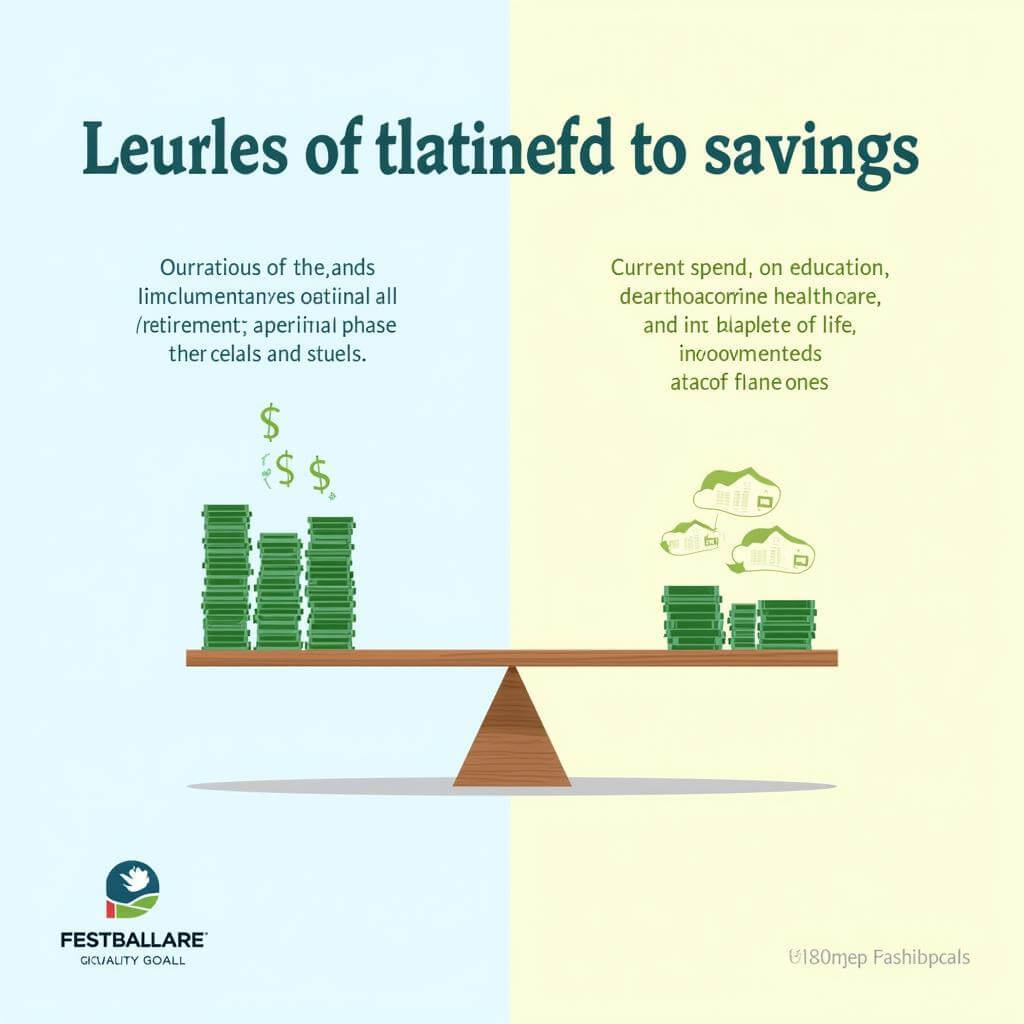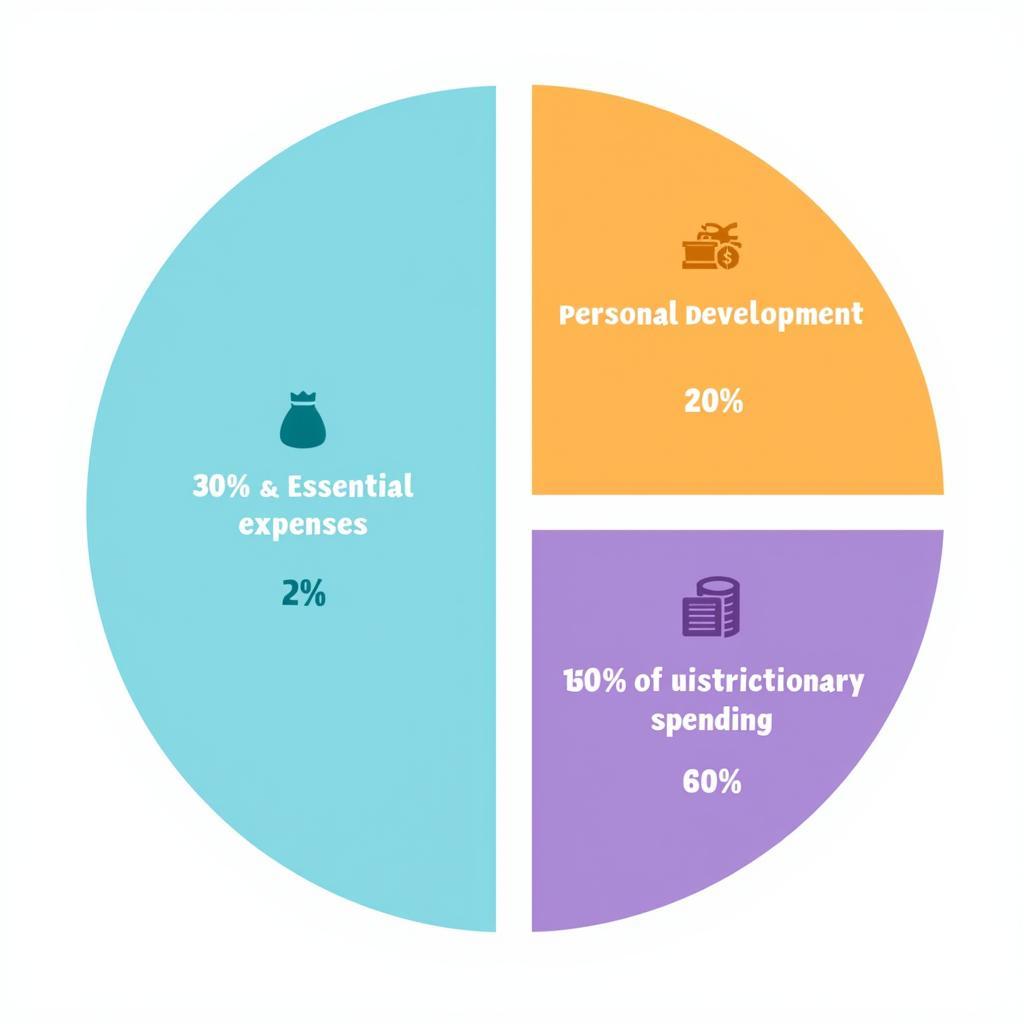The topic of savings accounts and their impact on the economy is a highly relevant one for IELTS Writing Task 2. While not appearing as frequently as some other subjects, it has been featured in past exams and remains a potential topic for future tests. Given its importance in personal finance and macroeconomics, candidates should be prepared to discuss this subject. Let’s examine a real IELTS question that touches on this theme:
Some people believe that individuals should save money for their own future while others think it is better to spend money to improve our standard of living now. Discuss both these views and give your own opinion.
Analysis of the Question
This question requires candidates to:
- Discuss the benefits of saving money for the future
- Explore the advantages of spending money to improve current living standards
- Provide a personal opinion on which approach is preferable
The topic relates closely to personal finance decisions and their broader economic implications. It’s essential to consider both short-term and long-term effects on individuals and society.
Sample Essay 1 (Band 8-9)
In today’s consumer-driven society, the dilemma between saving for the future and spending to enhance current living standards is increasingly pertinent. While both approaches have their merits, I believe a balanced strategy that prioritizes saving while allowing for measured spending is the most prudent course of action.
Proponents of saving argue that it provides financial security and enables individuals to weather unforeseen circumstances. By setting aside a portion of their income, people can build a safety net for emergencies, plan for major life events such as buying a home or funding education, and ensure a comfortable retirement. Moreover, a high savings rate can contribute to economic stability by reducing reliance on credit and fostering a culture of financial responsibility. This approach aligns with the traditional virtue of thrift and can lead to long-term prosperity for both individuals and society.
On the other hand, advocates for spending to improve current living standards contend that it stimulates economic growth and enhances quality of life. By investing in better housing, healthcare, education, and leisure activities, individuals can enjoy a higher standard of living and potentially increase their earning capacity. This perspective emphasizes the importance of living in the present and argues that excessive saving can lead to a deferred life syndrome, where people postpone happiness and experiences for a future that may never come.
In my opinion, while both viewpoints have validity, a balanced approach that prioritizes saving is most beneficial. I believe that cultivating a habit of saving is crucial for financial stability and future well-being. However, this should not come at the expense of all current enjoyment or investment in personal development. A prudent strategy would involve setting aside a significant portion of income for savings and future goals while allocating a reasonable amount for improving one’s present standard of living.
This balanced approach offers the best of both worlds: it provides financial security and future prosperity while allowing for a satisfying quality of life in the present. By doing so, individuals can avoid the extremes of either living beyond their means or sacrificing all present enjoyment for an uncertain future.
In conclusion, while the temptation to spend for immediate gratification is strong, the wisdom of saving for the future cannot be overlooked. A judicious balance between the two, with an emphasis on saving, offers the most sustainable path to both personal and societal well-being.
 The impact of savings accounts on economy: A balanced approach
The impact of savings accounts on economy: A balanced approach
Sample Essay 2 (Band 6-7)
The question of whether to save money for the future or spend it to improve our current standard of living is a difficult one. Both options have their advantages and disadvantages, and in this essay, I will discuss both views before giving my own opinion.
Saving money for the future is important because it gives us financial security. When we save, we have money for emergencies or big expenses like buying a house or paying for education. It also helps us prepare for retirement, so we don’t have to worry about money when we’re older. Saving can also be good for the economy because it gives banks more money to lend to businesses, which can create jobs and growth.
On the other hand, spending money to improve our standard of living now has its benefits too. When we spend money on things like better food, healthcare, or education, we can enjoy a better quality of life right away. This spending can also help the economy by creating demand for goods and services, which can lead to more jobs and economic growth. Additionally, investing in ourselves through education or skills training can increase our earning potential in the future.
In my opinion, it’s best to find a balance between saving and spending. I think it’s important to save some money for the future, especially for emergencies and retirement. However, we shouldn’t save so much that we can’t enjoy life now or invest in improving ourselves. I believe that saving about 20-30% of our income and using the rest to live comfortably and invest in personal development is a good approach.
To conclude, while both saving for the future and spending to improve our current standard of living are important, I think a balanced approach that prioritizes some saving while still allowing for quality of life improvements is the best way forward.
Sample Essay 3 (Band 5-6)
Nowadays, many people are thinking about whether they should save money for the future or spend it now to have a better life. This is a hard choice because both have good points. In this essay, I will talk about both sides and give my opinion.
Saving money is good because it helps us be ready for the future. When we save, we have money for big things like buying a house or paying for school. It’s also good to have money saved in case something bad happens, like losing a job. Saving money can make us feel safe and not worry so much about money problems.
But spending money now can also be good. When we spend money on things like good food, nice clothes, or fun activities, we can enjoy life more right now. Sometimes, spending money on education or learning new skills can help us get better jobs and make more money later. Also, when people spend money, it can help businesses and make the economy stronger.
I think it’s important to do both – save some money and spend some money. We should save some money for the future so we can feel safe, but we should also spend some money to enjoy life now and make ourselves better. Maybe saving half of the money we don’t need for basic things and spending the other half could be a good idea.
In conclusion, saving money and spending money are both important. We need to think carefully about how to use our money so we can have a good life now and in the future.
 The impact of savings accounts on economy: Balanced money allocation
The impact of savings accounts on economy: Balanced money allocation
Explanation of Band Scores
Band 8-9 Essay:
- Fully addresses all parts of the task with a well-developed response
- Presents a clear position throughout the essay
- Uses a wide range of vocabulary with very natural and sophisticated control of lexical features
- Uses a wide range of structures with full flexibility and accuracy
- Ideas are coherently organized with clear progression throughout
- Uses cohesive devices effectively
Band 6-7 Essay:
- Addresses all parts of the task, though some parts may be more fully covered than others
- Presents a relevant position, though conclusions may become unclear or repetitive
- Uses an adequate range of vocabulary with some errors in word choice
- Uses a mix of simple and complex sentence forms with some errors
- Arranges information coherently with clear overall progression
- Uses cohesive devices but may be overused or inadequate
Band 5-6 Essay:
- Addresses the task only partially; format may be inappropriate in places
- Expresses a position but development is not always clear
- Uses limited range of vocabulary; errors may cause some difficulty for the reader
- Uses only a limited range of structures with only rare use of subordinate clauses
- Presents information with some organization but there may be lack of overall progression
- Makes inadequate, inaccurate or over-use of cohesive devices
Key Vocabulary to Remember
-
Financial security (noun) – /faɪˈnænʃəl sɪˈkjʊərəti/ – The state of having stable income or financial resources.
-
Standard of living (noun phrase) – /ˈstændərd əv ˈlɪvɪŋ/ – The degree of wealth and material comfort available to a person or community.
-
Prudent (adjective) – /ˈpruːdənt/ – Acting with or showing care and thought for the future.
-
Thrift (noun) – /θrɪft/ – The quality of using money and other resources carefully and not wastefully.
-
Deferred life syndrome (noun phrase) – /dɪˈfɜːrd laɪf ˈsɪndrəʊm/ – The act of postponing enjoyment or experiences for a future time.
-
To stimulate growth (verb phrase) – /tə ˈstɪmjuleɪt grəʊθ/ – To encourage or promote economic development.
-
Financial stability (noun phrase) – /faɪˈnænʃəl stəˈbɪləti/ – The condition in which the financial system can withstand shocks without major disruption.
-
Discretionary spending (noun phrase) – /dɪˈskreʃənəri ˈspendɪŋ/ – Money spent on non-essential items or services.
-
Economic implications (noun phrase) – /ˌiːkəˈnɒmɪk ˌɪmplɪˈkeɪʃənz/ – The potential effects or consequences on the economy.
-
Quality of life (noun phrase) – /ˈkwɒləti əv laɪf/ – The standard of health, comfort, and happiness experienced by an individual or group.
 Key vocabulary for discussing the impact of savings accounts on economy
Key vocabulary for discussing the impact of savings accounts on economy
In conclusion, the impact of savings accounts on the economy is a multifaceted topic that requires careful consideration of both individual and societal benefits. As you prepare for your IELTS Writing Task 2, remember to balance arguments for both saving and spending, while developing a clear personal stance. Practice writing essays on similar topics, such as how rising inflation affects home loans or best savings strategies during high inflation, to broaden your understanding of economic issues. You might also want to explore related themes like impact of inflation on personal savings to enhance your vocabulary and argument skills. Remember, the key to success in IELTS Writing is practice and a deep understanding of the topics. We encourage you to write your own essay on this topic and share it in the comments section for feedback and discussion.


